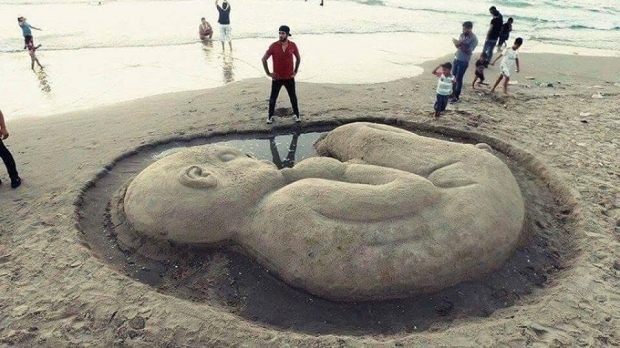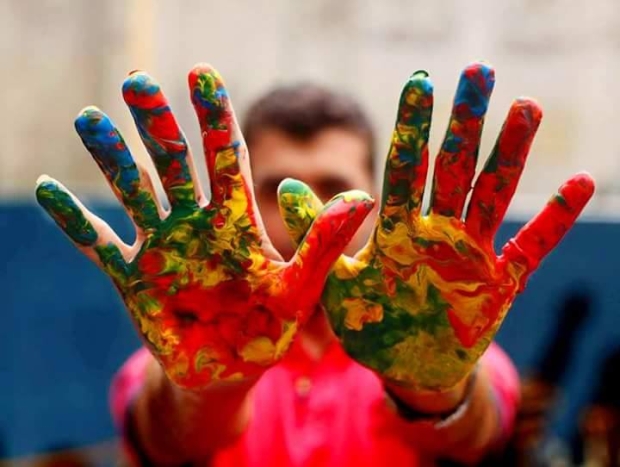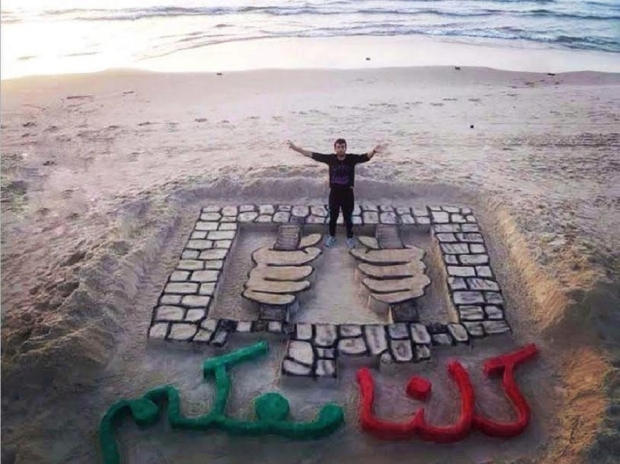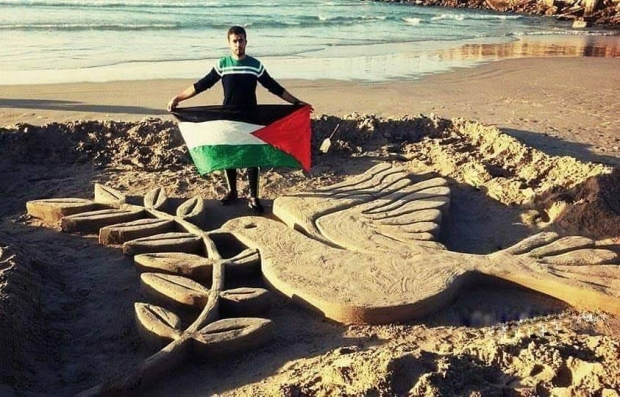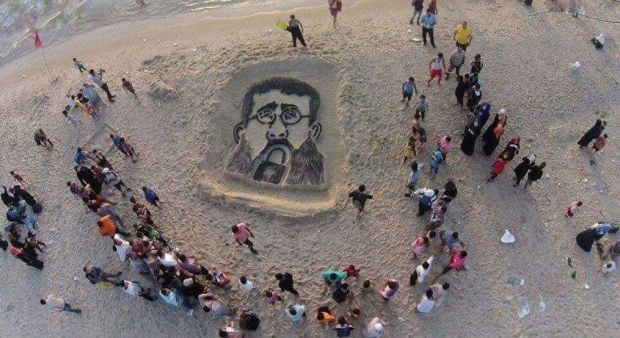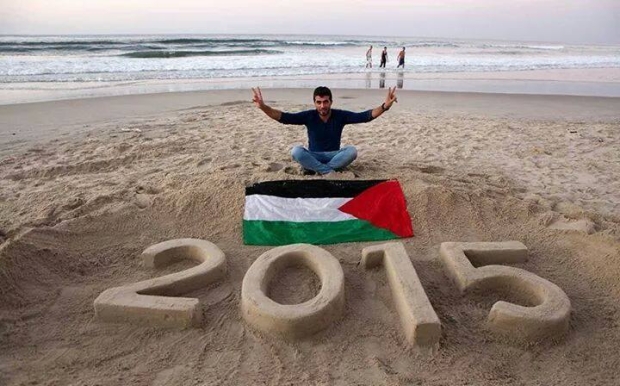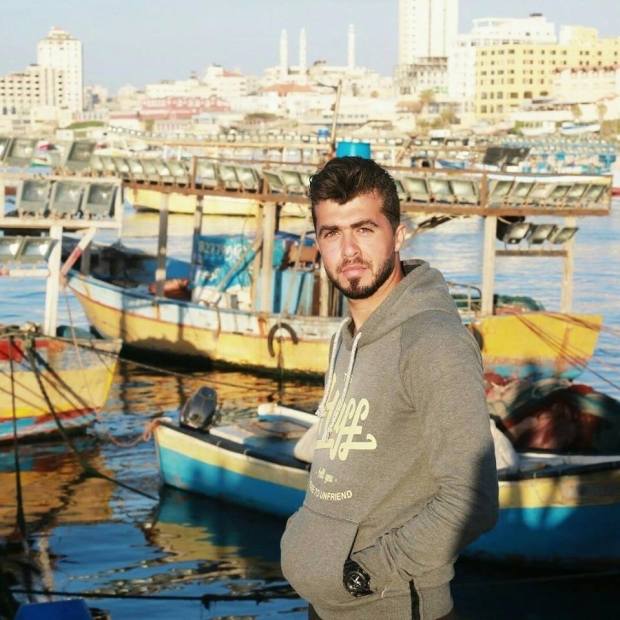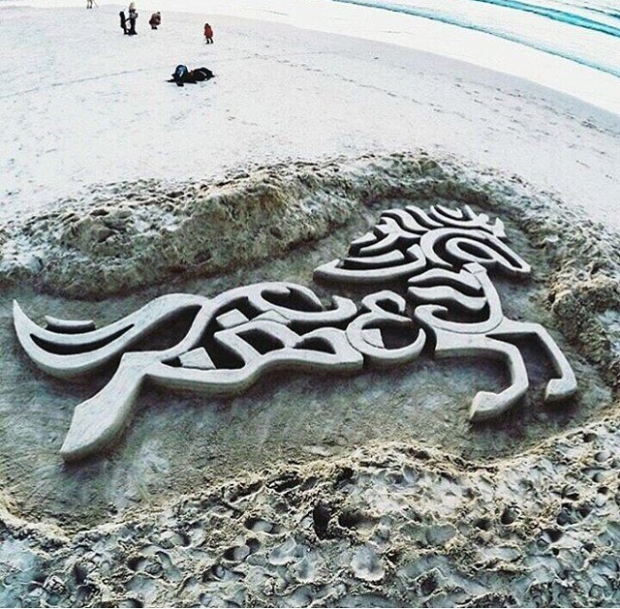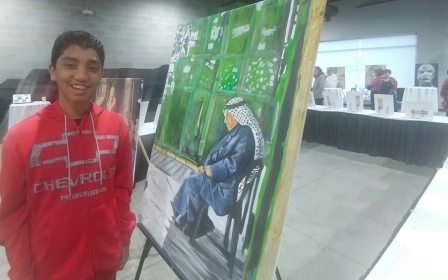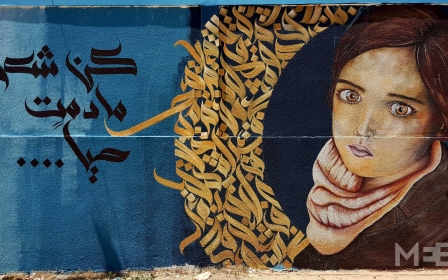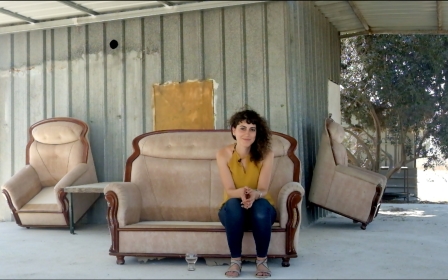Sand sculptures on Gaza's beach: Artist documents Palestinian history
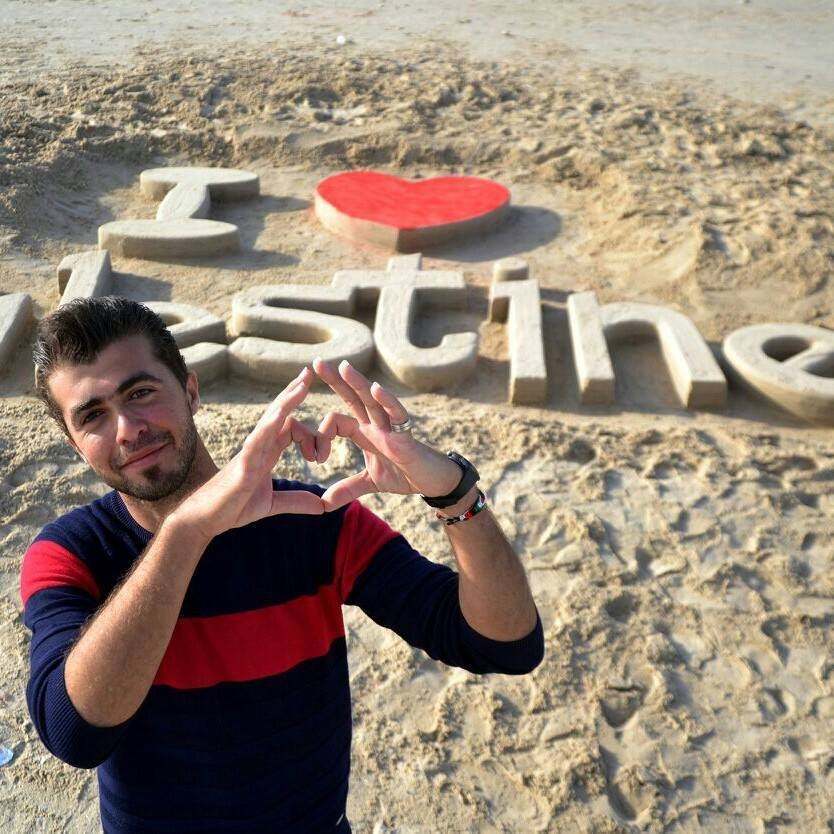
GAZA STRIP - When the sun is glaring down on the Gaza Strip and temperatures soar, most residents head to the beach to swim and relax. Yet 26-year-old Osama Sbeata is unlike most Gazans and has a completely different objective under the sun's golden rays: documenting Palestinian history through sand sculptures.
"I chose the beach because it is considered the only breather for the Gaza Strip, in addition to the fact that many people go to it," Sbeata told Middle East Eye.
'I chose the beach because it is considered the only breather for the Gaza Strip, in addition to the fact that many people go to it'
- Osama Sbeata, Palestinian artist
When Sbeata picks up his tool for digging and sand sifting - an iron shovel - he sculpts different images that depict Gaza city, the Palestinian cause and political developments that have taken place. His unique creations require patience and perseverance to achieve perfection on the dishevelled sand, but the main material for his art is available for free on Gaza's coast.
”I started drawing on paper when I was a little child until I grew up and became proficient in composition. I have been sculpting on the sand for nearly four years," he said.
Sbeata's first attempt at a sand sculpture came about by chance one day while he was playing in the sand. He realised that the beach was a destination for many vacationers and citizens and therefore a perfect place to practice his art and raise awareness about the Palestinian cause.
In April 2015, Sbeata created a sand sculpture of a famous symbol of peace, the "peace dove", and he quickly gained renown.
"I always go to the sea because it is the only breather for the residents of the Gaza Strip," said Mohammed Ali, a 19-year-old resident of Gaza City, who is a vacationer on the seashore.
"I was amazed at how wonderful I felt when I saw such drawings done by Sbeata, on the anniversary of the Nakba catastrophe," Ali said. “Such talents need support in order for them to represent Palestine in international forums,” he added.
"The first picture I published on social media sites was on the 1st of January 2015, which won the admiration of many," Sbeata said. By writing '2015' in the sand that year on New Year's Day, Sbeata wanted to convey the message that he hoped the year was going to be one of peace for Palestine.
According to Sbeata, many young people in the Gaza Strip have recently started practising various arts, including drawing on sand, to escape the difficult Gazan reality they live in.
Sbeata's talent has also allowed him and his family to make a living. For a sum ranging from $40 to $1,000, he dabbles in "corporate logos, names of couples and special events such as holidays”, he said.
In order to document his work, Sbeata photographs each work of art before the inevitable process of disintegration takes place when the sand starts to fall apart. Each creation marks a fleeting moment in time.
Without a doubt, Sbeata's one greatest wish is for the siege on Gaza to be lifted so that he can freely exercise his talent around the world and participate in international sand sculpting competitions.
'The drawings are not random: they are about the reality of the Palestinians, especially the people living inside the Gaza Strip who are experiencing siege'
- Osama Sbeata, Palestinian artist
Ahmed Shmood, a 20-year-old citizen and social networking activist, said that Sbeata's drawings not only focus on historical events that occur in Palestine, but they also try to depict the daily suffering of Palestinians, especially during national events.
"We are always impressed by his artistic work and his creative drawings, which accompany events going on in Palestine," Shmood said.
"We in the general administration of arts have a close relationship with all kinds of artists, including those sculpting on sand," al-Shaer said. " Among these is Osama Sbeata, who amazes us with his wonderful and distinctive drawings."
'The youth sector is suffering from extreme unemployment, causing young people to try to escape from unemployment and pursue different arts'
- Ahlam al-Shaer, an official at the ministry of culture in Gaza
Al-Shaer pointed out that the youth in Gaza use art as way to imaginatively escape unemployment and other dire conditions in the beseiged strip.
"The youth sector is suffering from extreme unemployment, causing young people to try to escape from unemployment and pursue different arts. The Gaza Strip has many young talented youth who need support,” he said.
New MEE newsletter: Jerusalem Dispatch
Sign up to get the latest insights and analysis on Israel-Palestine, alongside Turkey Unpacked and other MEE newsletters
Middle East Eye delivers independent and unrivalled coverage and analysis of the Middle East, North Africa and beyond. To learn more about republishing this content and the associated fees, please fill out this form. More about MEE can be found here.


